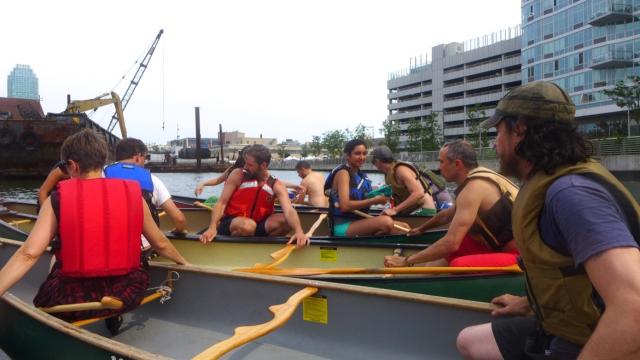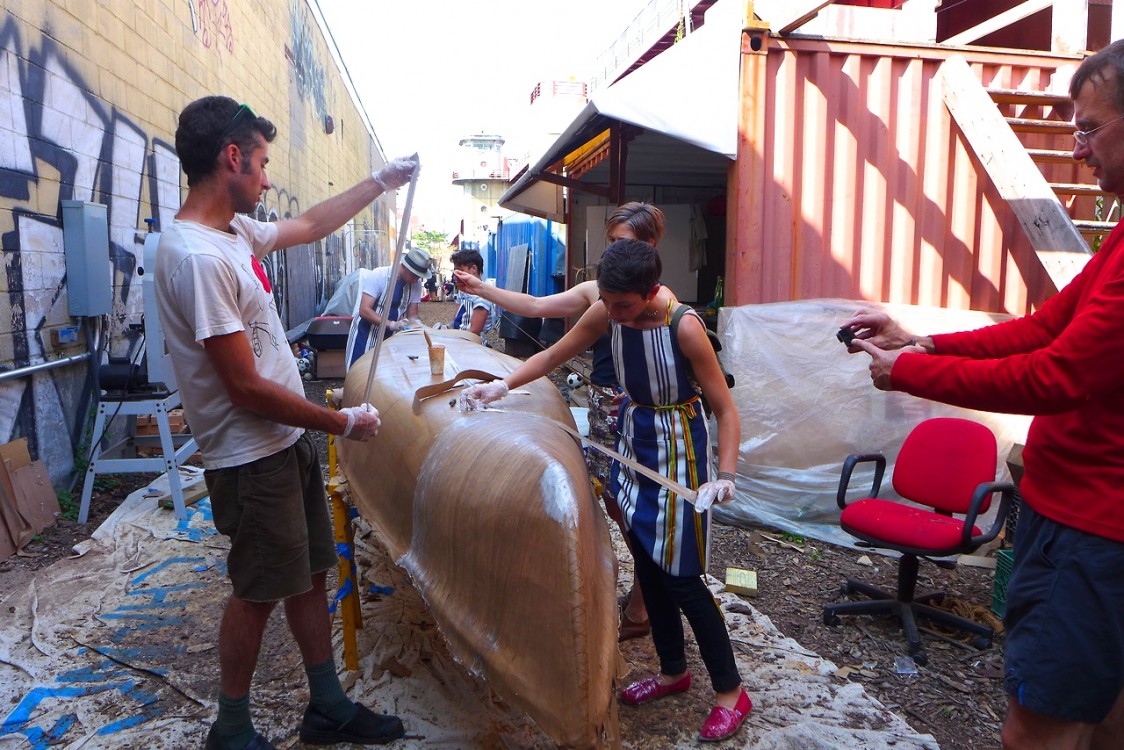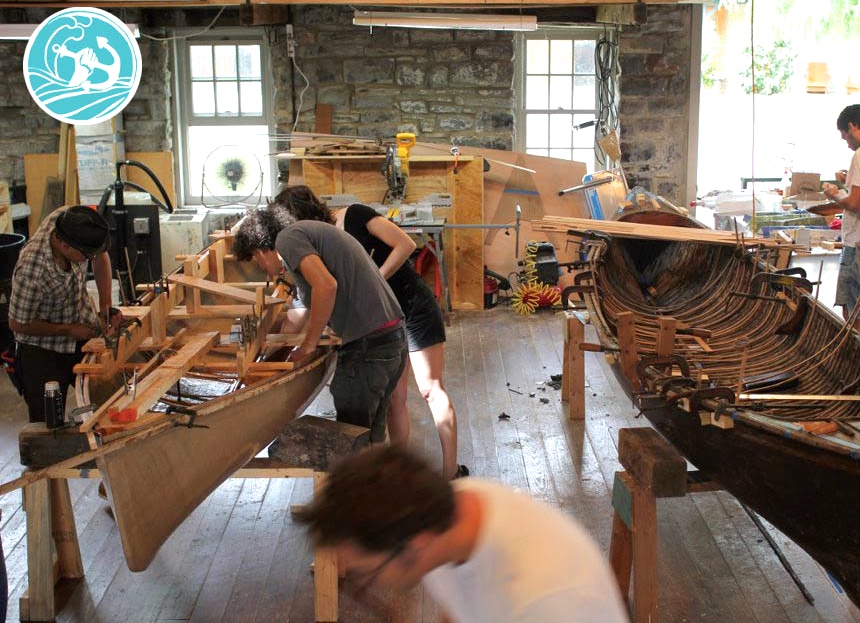
A little origami paper boat is beautiful, and might even float. But a flotilla of life-sized paper canoes heading on a two-week tour down the Hudson River to raise issues of climate change, organizing and community resilience takes the paper boat to a whole new level.
That is exactly what Brooklyn-based boat art collective Mare Liberum and 350.org’s art ambassador thought when they began constructing paper boats for that purpose. Now, after months of labor and making sure their boats had enough kraft paper and wood glue to float, they're already halfway through their two-week journey called SeaChange: We All Live Downstream.
From Aug. 30 to Sept. 14, the boats are stopping in numerous communities along the Hudson River and, along with local hosts, taking part in community discussions, potlucks and screenings on a range of climate-related issues affecting the region.
“We aren’t just talking about a changing climate,” says Amaranta Herrero, a Spanish activist who has joined the flotilla. “We want to be talking about climate justice. We are going to be talking about climate change and militarization, nuclear, and even the so-called ‘bomb trains’ carrying crude oil that are already heading through the Hudson Valley.”
The flotilla will be arriving in Manhattan a week before the People’s Climate March, which is set for Sept. 21 and is expected to be perhaps the largest march for climate action in history. Organized in response to the UN Climate Summit called by Ban-Ki Moon, the march brings together more than 700 groups working on a variety of related issues including racial, economic and migrant justice, as well as labor and faith groups.
Another issue the flotilla is highlighting is the importance of water as a global commons. “We all live downstream,” says Onur Fidangul, an organizer from Istanbul. “We will all suffer the effects of melting icecaps, dirty extraction projects, and dangerous transport of fossil fuels which are producing the crisis.”
The group is highlighting concerns about the Hudson, New York's historic river, being transformed into a “virtual pipeline” of trains and boats that would increase the amount of Bakken crude coming to the region from as far away as North Dakota.
Albany and Newburgh, two of the stops on the flotilla’s trip downriver, are targets of the oil industry. The Port of Albany oil terminal has been quietly expanding capacity to accept crude oil shipments by rail. The oil would then be transferred to oil barge in order to be shipped down the Hudson.
“A spill would mean disaster for the Hudson River ecosystem and the communities along its shore, and what isn’t spilled means disaster for the climate and civilization as we know it,” says Kevin Buckland of 350.org.
Many communities in the state have already faced the devastating impacts of climate change. Some are still dealing with the aftermath of Hurricane Sandy, which hit the region almost two years ago and caused upwards of $68 billion in damages.
In its aftermath, New York saw the emergence of what became known as Occupy Sandy, a grassroots disaster relief network that provided mutual aid to communities impacted by the storm – showing in real-time how community resilience and cooperation is necessary for post-disaster survival.
And it's in this spirit that the flotilla embarked on its journey. “It gives us a sense of what might be possible,” says Sunita Prasad of the Mare Liberum arts collective that co-created this project.
“We need to move beyond the legacy of exploitation and imperialism, colonization and domination; these are the root causes of climate change. Sometimes facing these pressures seems as hopeless as a boat made out of paper," Prasad adds. "But if we apply our resistance layer by layer, as we have applied paper to these boats, we can come up with something strong and sturdy that keeps us afloat.”
The flotilla will end its trip with a circumnavigation of Manhattan island just days before the People’s Climate March. The circumnavigation will last 12 hours and incorporate musicians, slogans written in light and the participation of several local boat clubs. The message is one of banding together to keep everyone afloat on rising seas.
"While we are heading to communities to encourage them to organize, many of them are also organizing buses and community members to get to New York City at the end of September," says Buckland from the flotilla. "So when it comes to folks organizing in their community against these projects, that also includes connecting with other communities – which we should definitely see in the streets and on the waters in New York."
For more info about the flotilla go here. Follow SeaChange on Twitter and Instagram.
3 WAYS TO SHOW YOUR SUPPORT
- Log in to post comments

















